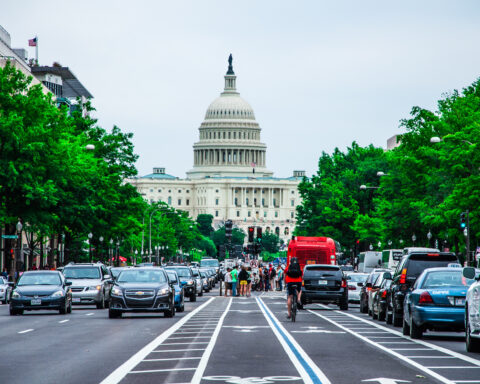Earlier this month, the Canadian Association of Petroleum Producers publicly criticized the federal government’s new greenwashing rules, saying they “effectively silence” climate discussion, impeding companies from speaking to Canadians about their projects’ green credentials. This was the most recent of a series of public criticisms by lobby groups and pundits of the new rules, which require companies to have evidence to substantiate their green claims.
Some of the concerns raised by opponents – which include the Government of Alberta and even a former commissioner of competition – are legitimate. Ironically, though, opponents have made several misleading comments about this measure, itself aimed precisely at combating misinformation.
One of opponents’ chief complaints is that requiring companies to substantiate their green claims using “internationally recognized methodology” introduces unreasonable uncertainty, potentially stifling green claims and cleantech investments.
As with any new law, case law and guidelines will gradually clarify the scope of the requirements. The Competition Bureau has already issued interim guidance and plans to issue more. It’s true that the bureau’s guidance, which is not legally binding, won’t provide total certainty. However, this is only an argument for the government to issue regulations laying out which substantiation methods companies should use, as in the European Union.
In the meantime, companies may look at the dozens of international standards that are already commonly used as the backbone of sustainability disclosures, such as those of the Greenhouse Gas Protocol and the Science Based Targets initiative. For technologies so cutting-edge that they lack dedicated standards, generic substantiation methodologies, such as ISO 14063:2020, should be considered, and companies should be transparent about any limitations of new tech.
In fact, rather than preventing honest businesses from making claims, these new rules will help them stand out. Consumers and investors are currently flooded with environmental claims – and they are learning not to trust any of them. By reducing the number of speculative and misleading claims, the provisions will allow true industry leaders to shine through.
Other jurisdictions, including the United States, the United Kingdom, France and Australia, also have substantiation requirements for environmental claims, with guidance available to help businesses comply. If foreign companies can meet their requirements, Canadian firms can too.
Some concerns have also been raised about the size of the maximum penalties under these rules, which can be up to 3% of a company’s annual worldwide gross revenue. However, maximum penalties, which are imposed only in the most egregious cases, are not representative of the risks raised by the amendments. In fact, the Competition Act prevents the Competition Tribunal from imposing penalties on firms that make sufficient efforts to comply with the law.
RELATED:
Canada’s greenwashing law has been a major reality check for the oil lobby
Canada’s new greenwashing ban rattles fossil fuel industry
Challenging the amendments on the basis of freedom of expression is unlikely to be successful. Their purpose is to increase the public’s access to truthful information about companies’ efforts to combat the climate and ecological crises of our time. In addition, the new requirements have a limited impact on companies’ freedom of expression, because they restrict only claims that are not backed by evidence. Moreover, past constitutional challenges of similar substantiation provisions indicate that they can withstand constitutional scrutiny.
The amendments are also unlikely to spark a wave of frivolous greenwashing suits by non-governmental organizations and environmental activists. Past experience under provincial deceptive-marketing laws shows this has not been an issue. In addition, the potentially high costs on NGOs if they lose a case will deter baseless lawsuits. Just last year, the Competition Bureau was required to pay $13 million in legal costs after its failed challenge of the Rogers/Shaw merger. Furthermore, the Competition Tribunal has the authority to dismiss cases that are not in the public interest, providing a safeguard against frivolous claims.
Finally, the amendments were not rushed through without public debate, as has been claimed. Greenwashing was widely discussed during a public consultation on the reform of the Competition Act undertaken in the winter of 2023. Greenwashing was also widely debated in committee in the House of Commons and the Senate, where several stakeholders including the Competition Bureau noted the importance of ensuring that claims about businesses and their activities – such as net-zero targets – be subject to the new substantiation requirements.
The ongoing scaremongering campaign is unwarranted and risks turning into a self-fulfilling prophecy, leading companies to overestimate the legal risks associated with the changes and effectively chill green claims. Yes, the amendments could be improved, but companies that do their homework and make good-faith efforts to ground their claims in scientific principles will be largely unaffected. In fact, they are likely to benefit from the end of cheap green talk.
Iris Fairley-Beam is an independent legal researcher. Julien O. Beaulieu is a lecturer in law at the University of Sherbrooke and a researcher with the Quebec Environmental Law Centre.







